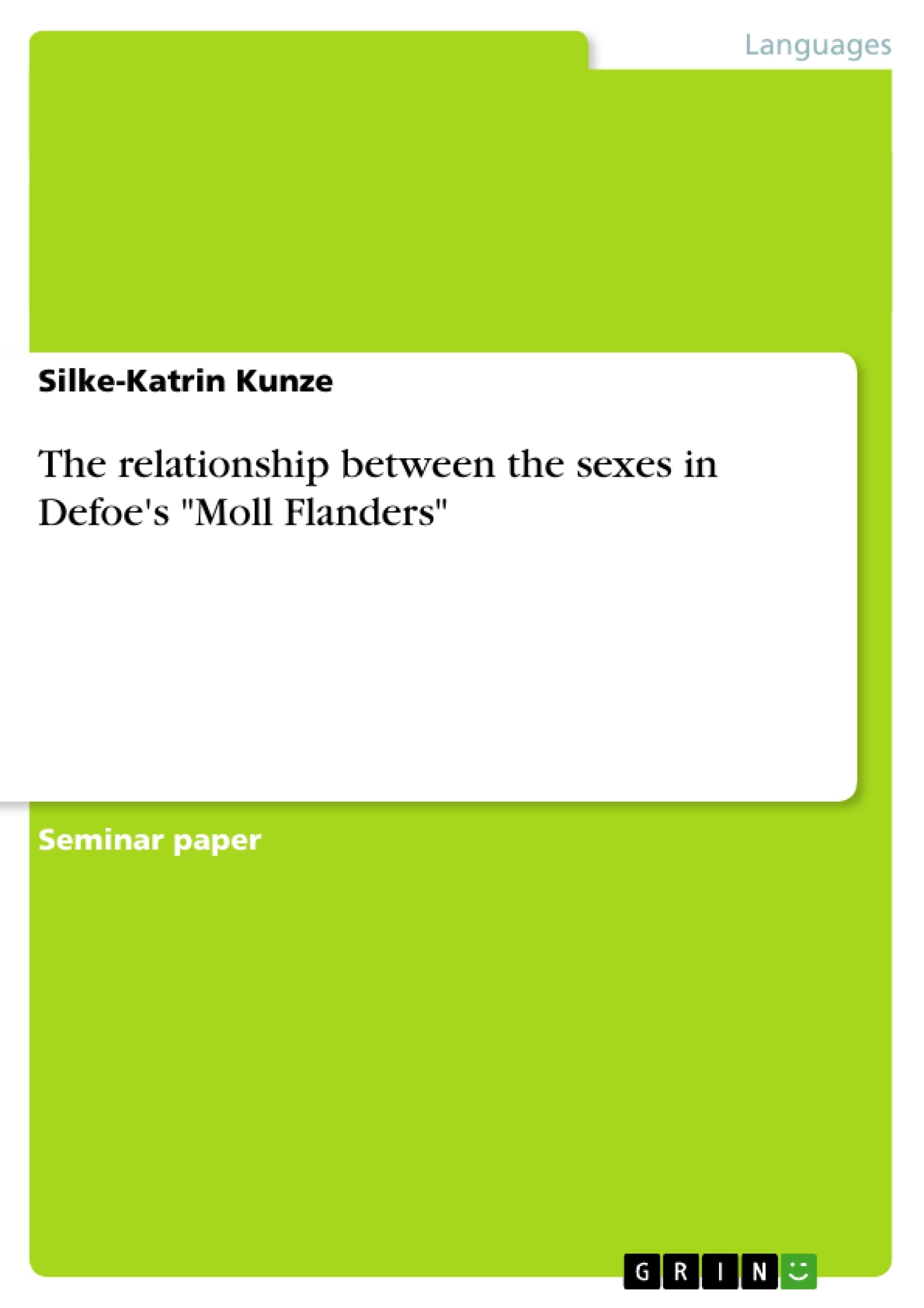Daniel Defoe is known for his „Robinson Crusoe“, but „Moll Flanders“ follows on its foot. Looked at here is: Daniel Defoe’s life, his novels and the novel “Moll Flanders” in particular. At the end there is a bibliography separated in primary and secondary.
Inhaltsverzeichnis (Table of Contents)
- Daniel Defoe
- His Life
- His Novels
- Moll Flanders
- Introduction
- Main Part
- Conclusion
Zielsetzung und Themenschwerpunkte (Objectives and Key Themes)
This paper aims to examine the portrayal of the relationship between the sexes in Daniel Defoe's "Moll Flanders." It analyzes how Defoe depicts women's struggles within a patriarchal society and explores the societal factors contributing to their circumstances.
- The challenges faced by women in 18th-century society.
- The portrayal of female criminality and its societal roots.
- The exploration of marriage and relationships as a means of survival for women.
- Defoe's depiction of social injustice and its impact on women.
- The use of a female narrator and her direct address to the reader.
Zusammenfassung der Kapitel (Chapter Summaries)
Daniel Defoe: His Life: This chapter provides a biographical overview of Daniel Defoe's life, highlighting key events such as his career as a merchant, his involvement in political affairs leading to imprisonment, and his later service as a secret agent. It emphasizes the varied experiences that shaped his perspective and likely influenced his writing, particularly his understanding of societal injustices and the circumstances of women. The chapter also notes the timing of his major works, placing "Moll Flanders" within the context of his later career. It connects his personal experiences, such as imprisonment and having multiple daughters, to his sensitive portrayal of women's struggles and the social forces driving them towards crime in his novels. Daniel Defoe: His Novels: This section discusses Defoe's contributions to the novel, noting his late entry into the field and his subsequent success. It highlights the range of characters, fates, and social issues he explored, emphasizing his objective and critical portrayal of society, particularly in his depiction of middle-class heroes and heroines. The chapter discusses the evolution of the novel form, connecting Defoe's work to earlier adventure and picaresque styles while emphasizing the progressive aspect of his featuring female narrators who directly address female readers, offering advice and warnings based on their experiences, as seen in "Moll Flanders" and "Roxana." Moll Flanders: Introduction: This introductory section sets the stage for the novel, introducing Moll Flanders as an ordinary woman navigating a hostile society. It highlights the themes of dignity, survival, and the challenges faced by women in the 18th century. The author's technique of having Moll address the reader directly is mentioned, highlighting the novel's intended impact and the moral ambiguity presented to the reader, who is invited to make their own judgments on Moll's actions. The introduction positions the narrative as a cautionary tale and highlights Moll's life as a representation of female hardship and societal pressures.
Schlüsselwörter (Keywords)
Daniel Defoe, Moll Flanders, 18th-century society, women's lives, female criminality, patriarchal society, social injustice, marriage, survival, female narrator, reader address.
Daniel Defoe's Moll Flanders: A Comprehensive Language Preview - FAQ
What is this document?
This document is a comprehensive language preview providing an overview of Daniel Defoe's life and works, with a specific focus on his novel "Moll Flanders." It includes a table of contents, objectives and key themes, chapter summaries, and keywords for academic analysis.
What are the main themes explored in this preview regarding "Moll Flanders"?
The preview focuses on the portrayal of women's struggles in 18th-century society within a patriarchal context. Key themes include the challenges faced by women, female criminality and its societal roots, marriage and relationships as survival mechanisms, social injustice, and the use of a female narrator who directly addresses the reader.
What aspects of Daniel Defoe's life are discussed?
The preview covers key biographical details of Defoe's life, including his career as a merchant, his political involvement and imprisonment, and his later work as a secret agent. It connects these experiences to his understanding of societal injustices and his portrayal of women's struggles in his novels.
What is covered in the chapter summaries?
The chapter summaries provide overviews of sections on Defoe's life, his novels (including his contribution to the novel form and the use of female narrators), and an introduction to "Moll Flanders," highlighting the novel's themes and narrative techniques.
What is the significance of Moll Flanders's direct address to the reader?
The direct address of Moll Flanders to the reader is highlighted as a significant narrative technique that enhances the novel's impact and invites the reader to engage in moral judgment regarding Moll's actions. It positions the narrative as a cautionary tale and emphasizes the moral ambiguity of the situations presented.
What are the key words associated with this analysis of "Moll Flanders"?
Key words include Daniel Defoe, Moll Flanders, 18th-century society, women's lives, female criminality, patriarchal society, social injustice, marriage, survival, female narrator, and reader address.
What is the overall objective of this preview?
The objective is to provide a structured and professional overview of "Moll Flanders," allowing for academic analysis of its themes and context. It aims to examine the portrayal of the relationship between the sexes in Defoe's work and explore the societal factors contributing to the circumstances of women in the 18th century.
What type of audience is this preview intended for?
This preview is intended for an academic audience interested in analyzing the themes of Daniel Defoe's "Moll Flanders" in a structured and professional manner. The information is presented to facilitate research and understanding of the novel's historical and literary significance.
- Quote paper
- Silke-Katrin Kunze (Author), 2001, The relationship between the sexes in Defoe's "Moll Flanders", Munich, GRIN Verlag, https://www.grin.com/document/15330



